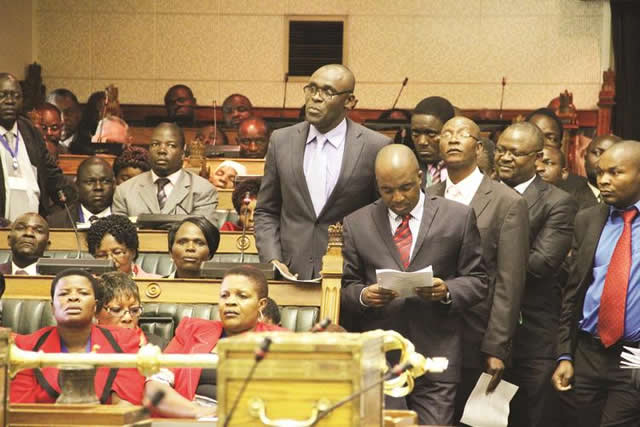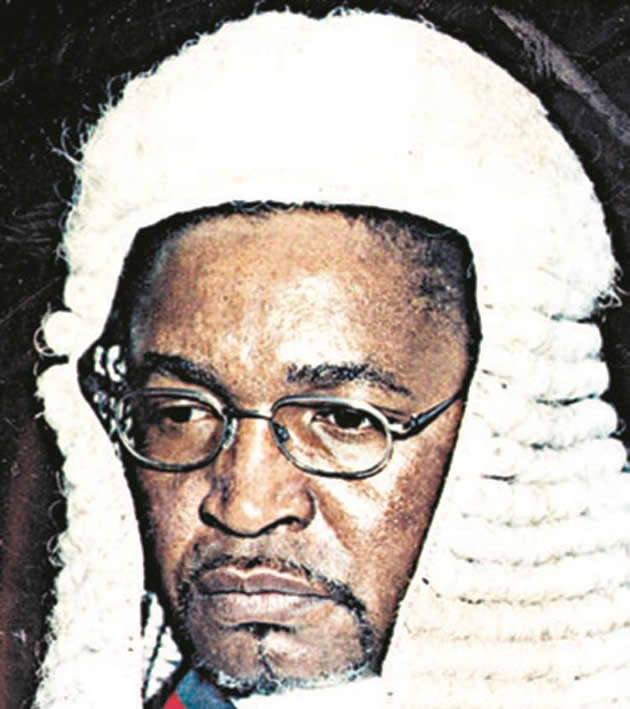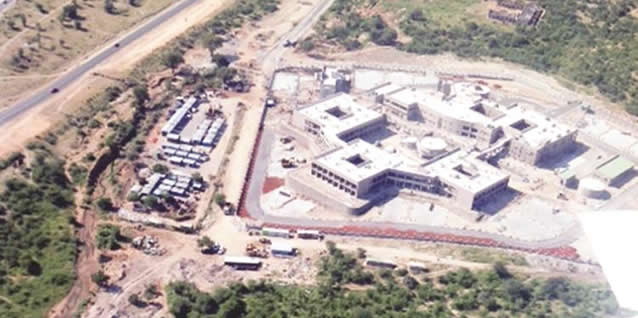Zim Parliament: Too many chiefs, few indians

 Lloyd Gumbo Mr Speaker, Sir
Lloyd Gumbo Mr Speaker, Sir
Does the number of Members of Parliament reflect the quality of representation of the people? Is representation about quantity or quality?
Or does it mean, the more MPs a country has, the better representation?
So, if that is the case, then are Zimbabweans the most represented in the world?
This is one tacky issue authorities should answer.
Parliament is a permanent structure of our constitutional democracy.
It is for this reason that we need to interrogate its make-up and output.
And there are still more questions, too, like do Zimbabweans feel better represented now that there are 350 MPs compared to the year 2000 when there were only 150 representatives?
As such, Hurungwe North legislator, Honourable Reuben Marumahoko’ suggestion last week that Parliament reduce the number of MPs through a constitutional amendment is sound.
And it surely provokes some soul searching on whether we are justified to have so many MPs at a time the country is struggling economically.
Marumahoko made the remarks while contributing to debate on President Mugabe’s speech at the official opening of the First Session of the Eighth Parliament.
Said Marumahoko: “Can a country like Zimbabwe afford the number of MPs we have? Of course we will have challenges. As we speak, Parliament is failing to pay honourable MPs. It is failing to give them fuel.
“It is a pathetic situation, it is unsustainable. This is a very small country that can survive with a very small Parliament and be able to achieve its goals.”
He could also have added that the House is failing to hold the burgeoned numbers and members now have to stand and squeeze each other for accommodation in the 92-year-old building.
Comparatively, Zimbabwe’s Parliamentary composition shows that we are one of the countries with the highest number of legislators, taking into account the population and land area.
There are 270 National Assembly representatives and 80 Senators, giving us 350 legislators.
First, Zimbabwe has a total area of about 390 580 square kilometres with a total population of just over 13 million.
Contrast that to Nigeria with a land area that is more than double the size of ours at 923 768 square kilometres and 170 million people, the largest population in Africa.
Nigeria has 469 legislators.
Interestingly, they also have a bicameral system-Lower and Upper Houses just like us.
Zambia has a total area that is over 75 percent of ours at 752 614 square kilometres, but only has 158 representatives.
There are economics to go with Parliament.
As it stands, the Government spends at least US$200 000 weekly whenever both houses sit.
This is despite the fact that our legislators are among the least-paid in the region.
Treasury has to buy each of the 350 MPs vehicles to make them mobile and able to fulfil their mandate.
If we are to use a modest figure of about US$30 000 that former Finance Minister Tendai Biti availed for the same purpose in the last Parliament, it means Treasury will splash at least US$10. 5 million on vehicles only.
Consider other perks like hotel accommodation, fuel coupons and sitting allowances for each legislator in addition to salaries and the figure shoots through the roof.
As Marumahoko rightly points out, our economy cannot sustain that.
But it is a Catch-22 situation: there is lack of fiscal space on one hand and the need to make our third pillar of the State perform its mandate on the other.
Our economy fares along if not less than some of the countries in the region, yet they have leaner Parliamentary representation.
Moreso, there are other countries in Africa with thriving economies like South Africa, Tanzania, Nigeria and Angola yet they have modest numbers of MPs.
So can Zimbabwe afford the luxury of having so many legislators?
Can Treasury afford to pay legislators that much when it is struggling to pay civil servants modest salaries?
As it stands, the State owes legislators allowances that may run into hundreds of thousands of dollars.
There is need for authorities to seriously consider the consequences of having many legislators when the economy is on its knees.
For instance, what is the rationale of having separate MPs for Kuwadzana East, Kuwadzana, Warren Park, Dzivaresekwa, Kambuzuma and Harare West when they can be collapsed into at most two?
One could argue that it’s not about area size, but the population, but if we compare the recent trend in terms of voting patterns we find that most constituencies in urban areas have not recorded more than 10 000 voters.
As if that is not enough, the new Constitution provides for something called provincial councils whose irrelevance seems to be affirmed by their non-existence, seven months after the elections.
When established, there will be 200 more people, meaning Government will have to pay them.
Thus the wage bill on governance structures will continue soaring while the economy wobbles.
There needs to be corresponding growth between resource availability and the numbers of our lawmakers.
We cannot afford the current scenario.
We need a modern democracy that is alive to the prevailing economic situation.
Another critical question in the number of legislators relates to conduct and quality of debates.
There is a possibility that having many legislators can affect the quality of debate in the House because some of them just go to Parliament to compete on who can shout the loudest.
The quality of debate in Parliament is incredibly at its all-time low.
Scholars in support of focus group discussions argue that modest numbers deliver better results than a mob because huge numbers are not easy to manage.
Governance requires a qualitative approach. Our governance structure may lead to duplication of roles which has in the past seen national assembly members and senators clashing.
Some authorities have become redundant which the provincial governance structure will worsen.
We will have a councillor, National Assembly member, Senator, Provincial Council and Minister of State for Provincial Affairs.
This is too much.
On another note, is having a bicameral system really necessary?
What is it that a senator brings to national governance or community representation that a national assembly member cannot?
Zambia and Mozambique have the unicameral system despite having larger populations and land size than us.
Yet they only have 158 and 250 legislators respectively.
Tanzania is almost 1 000 square kilometres with a population of about 48 million and a strong economy, but they have a unicameral system.
That country only has 357 MPs.
As such, there are louder questions on whether or not it is necessary to have two Houses.
The provision in the Constitution for an extra 60 seats for women under the proportional representation system defies logic to many people.
Authorities say that was meant to achieve gender equity in Parliament.
But my humble submission, is that they were being disingenuous.
Gender equality can still be achieved with two, 10 or 100 MPs as long as mechanisms are put in place to achieve that.
They could have still achieved gender parity with the 210 seats that were up for grabs.
Surely, given the foregoing, we have no justification to have so many MPs at a time our economy is screaming because of too many expectations.
Recommendations by Hon Marumahoko must be seriously considered.










Comments